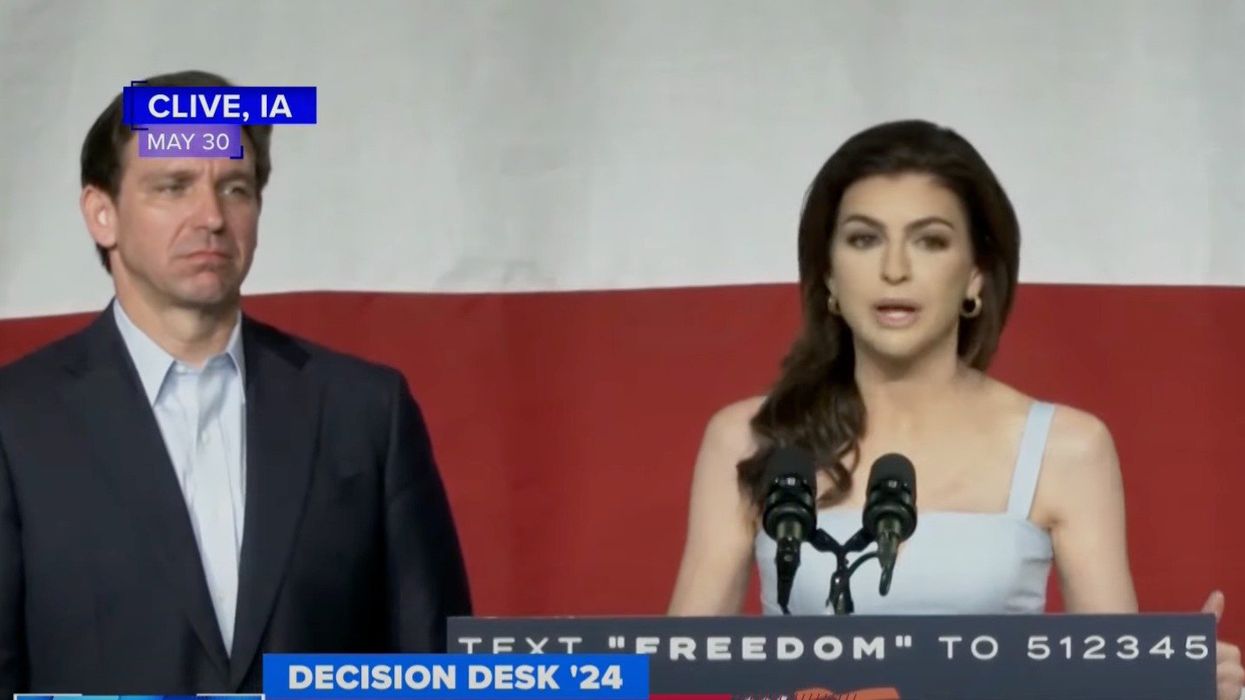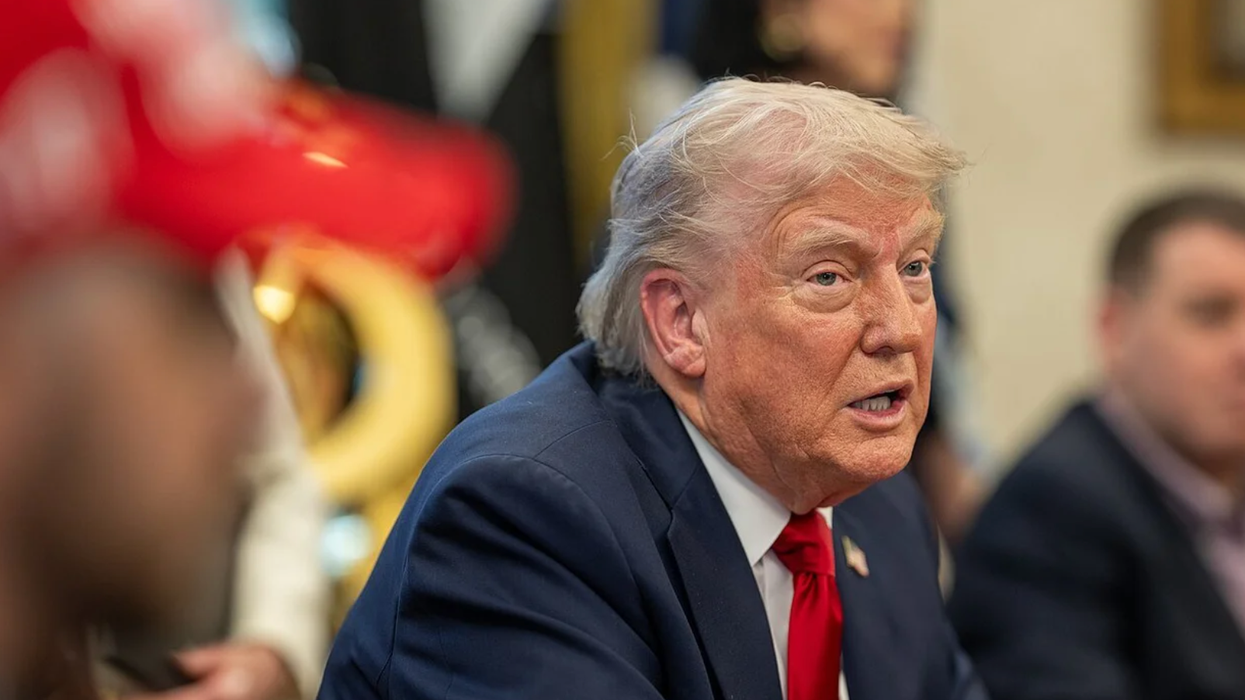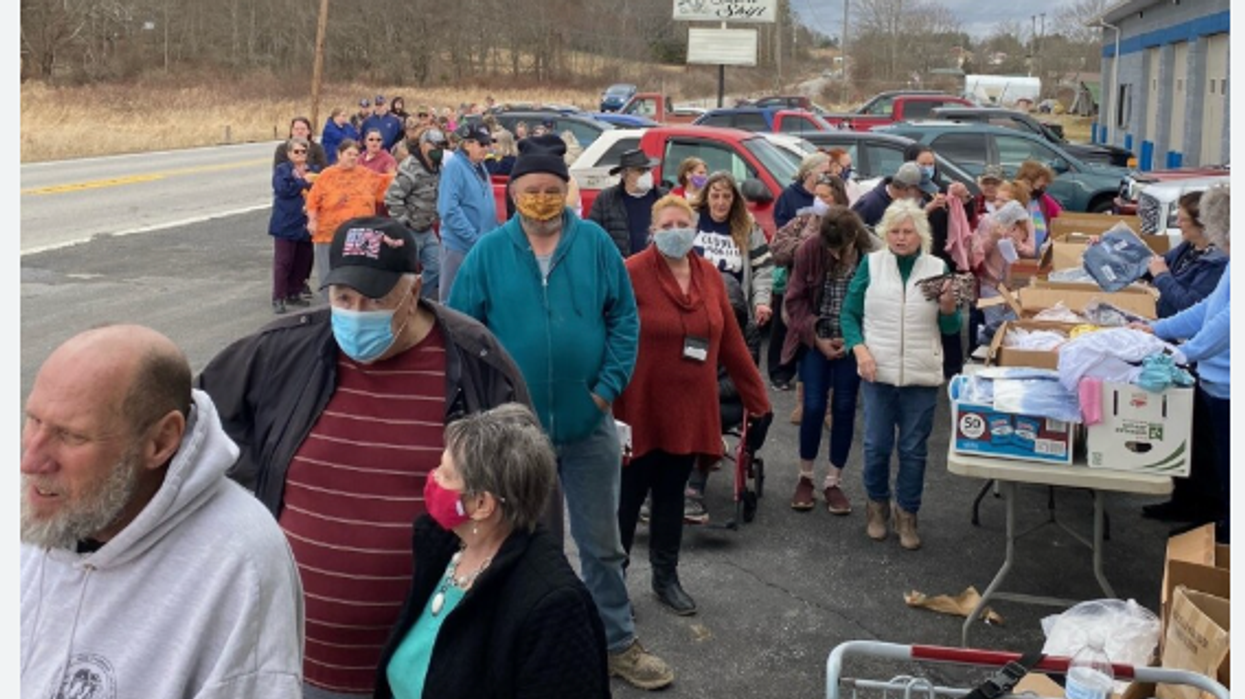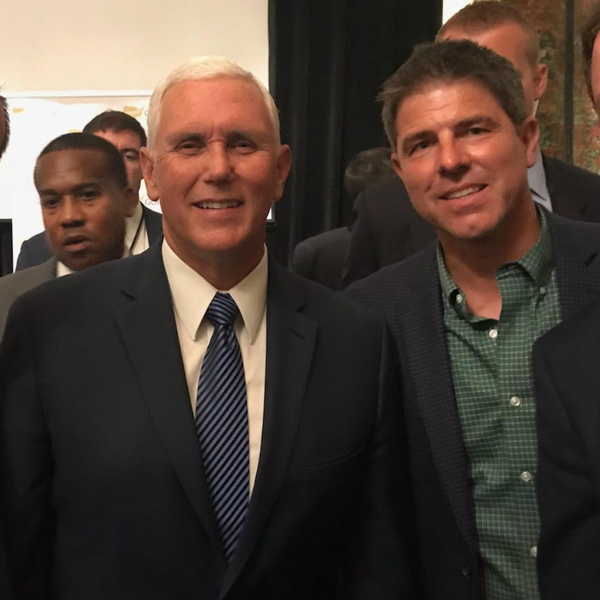West Virginia is one of the Trumpiest states in the country, with President Donald Trump winning the state by a whopping 42 percentage points in the 2024 election. So you’d think—having delivered for Trump so big—that they’d be winning all sorts of victories.
And yet …
According to the Des Moines Register, Trump’s plan to revive shipbuilding in the United States by charging massive fees for China-linked ship visits to U.S. ports is causing coal inventory to swell, stoking uncertainty in the already embattled agriculture industry as exporters struggle to find ships to send goods abroad.
As a result, West Virginia coal mines are preparing to lay off miners as unsold coal piles up.
But, but, but … Trump loves coal miners!
“After years of being held captive by Environmental Extremists, Lunatics, Radicals, and Thugs, allowing other Countries, in particular China, to gain tremendous Economic advantage over us by opening up hundreds of all Coal Fire Power Plants, I am authorizing my Administration to immediately begin producing Energy with BEAUTIFUL, CLEAN COAL,” he posted on Truth Social just earlier this week.
Despite what Trump says, coal is a dead industry, and he’s doing his part to drive the final nail in its coffin.
“Enacting and implementing those fees could halt exports of U.S. coal within 60 days, putting $130 billion worth of shipments at risk,” Ernie Thrasher, CEO and founder of Xcoal Energy & Resources, wrote in a letter to Commerce Secretary Howard Lutnick. “The fee structure could add up to 35% to the delivered cost of U.S. coal, making it uncompetitive on the global market. The loss of direct and indirect jobs would be catastrophic.”
Lutnick never responded.
There are fewer than 12,000 coal miners left in West Virginia, so … that sucks for them! But all of those newly unemployed miners can console themselves knowing that trans athletes are being punished.
So what about the state’s other industries—and its children?
As NBC reports:
Jennifer Gilkerson never imagined that her West Virginia farm’s freeze-dried fruits would get caught up in political fights in Washington, D.C. But last Friday, she learned that funding for a U.S. Agriculture Department program that helps schools and food banks buy products from local farmers like her had been cut. Without those federal dollars, Gilkerson no longer expects local schools to be able to buy her freeze-dried fruits, which she has already spent thousands of dollars preparing to produce.
“We’re just in such a state of shock. We just don’t really even know how to respond to all this. We thought that this was sacred and really untouchable,” Gilkerson said. “Everyone thinks all farmers voted for this, but we did not vote for this.”
The school and food bank program isn’t being cut because of “political fights” in Washington D.C. It’s literally central to the GOP agenda. A fight implies that the program got cut because of partisan warfare. This is a policy decision.
And yes, Jennifer, your state voted exactly for this—y’all just thought other people would suffer the brunt of it. But Project 2025 was very clear in its goal to slash all government spending—including the federal dollars that subsidize West Virginia.
“The overall goal should be to eliminate subsidy dependence,” Project 2025 says.
So yes, Jennifer. I don’t know who you voted for, but your fellow West Virginians overwhelmingly voted for this.
Common sense should dictate that if your state is the third most dependent on federal dollars you should maybe vote for the party that supports federal funding. I know, I know, trans this and trans that. But is destroying your entire economy worth the sacrifice for that bigotry?
“This is the economy of rural America. West Virginia is a wholly rural state, and so developing this agriculture economy in the state is extremely important. These farmers pay their property taxes, they’re business owners, a lot of times they’re commissioners or school board members. These are the drivers that keep rural communities alive. So it feels like a divestment in rural communities across the board,” Spencer Moss, executive director of the West Virginia Food and Farm Coalition, told NBC.
It’s called the “Department of Government Efficiency,” and it turns out that subsidizing small, rural states is not efficient. Those farmers aren’t paying enough in property taxes to cover expenses, which is why urban and blue-state folks are subsidizing it. But we liberal voters were fine with paying those subsidies because we’re all American, and we’re all in this together!
But if West Virginians thought the federal safety net would have their backs, boy they’re in for some disappointment.
According to Politico, the Agriculture Department has halted millions of dollars worth of deliveries to food bank leaders in six states, including West Virginia.
Chad Morrison, president of West Virginia’s Mountaineer Food Bank, said it’s “really challenging” to meet West Virginia’s needs.
“We can try to figure out how to make up the gaps, which is a hard lift, or ultimately there’s less food on the table,” he said.
States like West Virginia will be particularly hit by cuts to school lunches, food stamps, and other programs that deliver food to the hungry.
As for health care, West Virginia has 1.77 million residents, and more than 516,000 of them are on Medicaid, which also keeps the state’s rural hospitals afloat.
But hey, almost three-quarters of the state decided that wasn’t important enough to protect with their vote. And Trump certainly doesn’t care about leaving his supporters without health care.
Still, you’d think that the state’s overwhelming support for Trump would somehow translate into some tangible victories, but the news is grim. Trump is more interested in hawking expensive cars for his billionaire buddy Elon Musk, hyping crypto for his bros, fantasizing about ethnically cleaning Gaza, obsessing over Greenland, and golfing. Lots and lots of golfing.
As for his voters, they really shouldn’t be surprised. After all, he did say, “I don’t care about you, I just want your vote. I don’t care.”
And he proves that every single day.

Reprinted with permission from Daily Kos.













